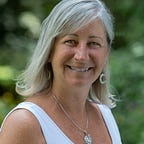Dr. Ray Baker — Interview
I had the honour of interviewing Dr. Ray Baker on February 20th, 2018. This was a real privilege given that I have known of his great work over the years, and I have admired him from afar.
Ray’s notoriety comes from his pioneer work in Medical Addiction Treatment.
What I discovered from Ray is that his passion for treating addicts was borne out of his own addiction. Ray was the “everything” doctor in a small town: made house calls, took his own x-rays, worked in the emergency room, he met everyone’s needs…except his own. As a result, Ray experienced his own burnout and addiction. When you are serving 55 patients a day and doing it all, this seems inevitable. In 1984, after eight years of this, Ray just walked out the back door — right into rehab.
Ray said he was so dull, he didn’t know what a feeling was. In treatment he learned about addiction, and experienced profound relief and help to get better. This made him mad. Why didn’t we learn about this in medical school?!
Ray was off work for nine months, then tried to return to practice. He could not. Once the veil was lifted, so was his tolerance. “In treatment” Ray said, “you thaw out emotionally, becoming raw to others.” This meant that he could no longer function in the high pressure, crisis environments that he once had. “The E.R. was terrifying!” So in 1985, Ray went to a Psychiatrist who provided a medical evaluation. Result: not going back to work.
So now what? He would take what he had learned and experienced, and turn it into the next phase of his career. In 1986, Ray completed the American Society of Addiction Medicine Certification. In 1988, he and his family (wife and two children) moved from small town B.C. to White Rock. Ray spoke very fondly of Dr. Elmer Ratzlaff, a man he referred to as a “pioneer in addiction medicine”. He too was a family doctor in recovery who had become a specialist in addiction medicine. “A great mentor” says Ray.
Ray set up a unique primary care addiction medicine practice in New Westminster. He recruited and trained Dr. Roy Morton, and later they would train both Dr. Don Hedges and Dr. Doug Coleman in community based primary care addiction medicine.
In 1989 there was a tragedy in Comox: an Anesthesiologist died of an overdose. This unfortunate event provided an opportunity. The provincial government provided funding for UBC Medical School to create an addiction medicine curriculum and Ray accepted the position to develop and direct the program. They added 32 hours of addiction medicine training woven into psychiatry, family medicine, neurosciences and clinical skills where AA provided simulated patients in long term recovery to assist. The program was a success. This success was short-lived, however. In 1995 the four year undergraduate curriculum was changed, reducing the classroom teaching from three years to two, and increasing hospital and clinical exposure from one year to two. The 32 hours of addictions training got booted.
This loss was not going to get Ray down. He continued to write policy and create other great programs, including occupational work — assisting organizations who recognize the cost of addictions in the workplace — such as Railway Association of Canada. This list goes on and on, for five pages actually, on Ray’s resume. Most of us can only hope to have an exhaustive list such as this.
Over the past 30 years as a consultant in addiction medicine, Ray estimates he has assessed and provided treatment and recovery recommendations for several thousand people suffering from addiction, often complicated by other psychiatric and medical conditions.
Now Ray is now “retired”, which we all know now is an outdated term as it was once known. In retirement, he has a keen interest in bikes, he runs marathons, and he competes in triathlons — where he recently won a Silver medal in the World’s in his category. Quite the retirement, I would say!
However, there is more. If he simply plays, as he puts it, he has a deeper feeling that he is abandoning/betraying his people. Because his field was good at doing, but not good at documenting, he feels the need to “document the rich history we have”. On that journey, Ray is presently authoring a book titled Recovery Medicine. We hope to be able to enjoy that sometime this year.
At the conclusion of our interview, I asked Ray if he had any advice for our readers, especially those who are working in the field of addiction:
- Black Belt in Boundaries
- Use good Motivational Interviewing techniques
- Learn about Recovery Capital, which includes social, physiological, attitudinal and spiritual. There is tonnes about the science of addiction, but not much about the science of recovery. We need instruments to measure Recovery Capital.
